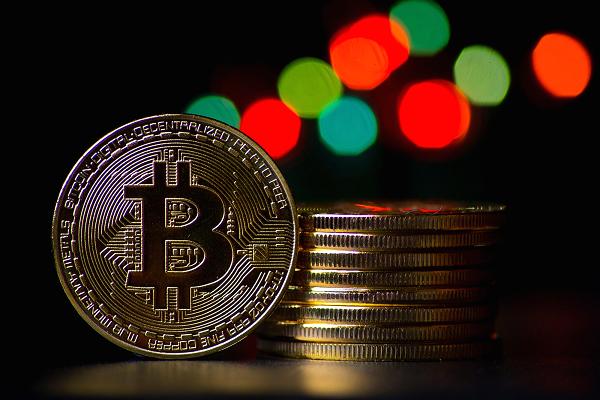LONDON/SINGAPORE: Global financial regulators are beginning to warn the public against the risks of investing in a market that many feel is in a speculative bubble, with Singapore’s central bank on Tuesday urging “extreme caution” about buying cryptocurrencies.
The staggering growth of bitcoin and other decentralized digital currencies this year – with the market swelling from around $17 billion at the start of January to well over $600 billion now – has led to increasing concerns over what the fallout could be if the bubble were to suddenly burst.
There have also been worries that regulators have not been doing enough to protect consumers. Many, though, say investors must take responsibility and must not expect protection if they lose money because of the difficulties of regulating an opaque, complex market that has no centralized authority.
The Monetary Authority of Singapore (MAS) said in an official statement on Tuesday it is “concerned that members of the public may be attracted to invest in cryptocurrencies, such as bitcoin, due to the recent escalation in their prices”.
“MAS considers the recent surge in the prices of cryptocurrencies to be driven by speculation,” the central bank said in a statement. “The risk of a sharp reduction in prices is high. Investors in cryptocurrencies should be aware that they run the risk of losing all their capital.”
The city-state’s central bank added that there is no regulatory safeguard for investments in cryptocurrencies and that it does not regulate them either.
It urged the public to act with “extreme caution” and to understand the “significant risks” they take on if they invest in virtual currencies.
Denmark’s central bank on Monday said bitcoin investing was “deadly”, warning the public to steer clear of it. It also said potential investors should not complain to financial regulators if things do go wrong.
A survey by the Centre for Macroeconomics and the Centre for Economic Policy Research released on Tuesday found a majority of leading European economists were in favour of greater regulatory oversight of the market, primarily because of concerns that cryptocurrencies facilitate tax evasion and other criminal activity.
But a large majority of the economists agreed that the market did not represent a threat to the stability of the financial system – now or in the next couple of years – as mainstream financial markets were isolated enough from bitcoin. They also took the view that the cryptocurrency market was still relatively small.
European Union states and legislators agreed last week on stricter rules to prevent money laundering and terrorism financing on exchange platforms for bitcoin and other virtual currencies, but it has not moved to regulate the market beyond that.
Late in 2013, the EU issued a formal warning on the risks of using unregulated online currencies, warning that bitcoin investors would be on their own if they lost money.
Bitcoin set a record high of $19,666 on Sunday on the Luxembourg-based Bitstamp exchange, its prices having surged more than twentyfold this year. On Tuesday at 1447 GMT, it stood at $17,942, down more than 5 percent on the day.
BIG IN ASIA
“As most operators of platforms on which cryptocurrencies are traded do not have a presence in Singapore, it would be difficult to verify their authenticity or credibility. There is greater risk of fraud when investors deal with entities whose backgrounds and operations cannot be easily verified,” the MAS said on Tuesday.
Singapore has been positioning itself in recent years as a capital for “fintech” – or financial technology – but it is not a centre for cryptocurrency trading. Instead, Japan and South Korea are home to some of the biggest global exchanges, and investors there have piled into the market over the past year.
South Korea said last week that it will ban minors from opening accounts on exchanges, a statement seen by Reuters showed, and that it may tax capital gains from cryptocurrency trading.
Japanese Finance Minister Taro Aso said on Tuesday that bitcoin had not been proven to be a credible currency and that he would watch its developments.
Australia’s central bank chief also last week warned of a “speculative mania” in the market, while his New Zealand counterpart said bitcoin appeared to be a “classic case” of a bubble and cast doubt on its future.
The chairman of the US Securities and Exchange Commission (SEC) warned last week that trading and public offerings of new cryptocurrencies in so called “Initial Coin Offerings” or “ICOs” may be in violation of federal securities law, after stopping one from going ahead.
China has outlawed ICOs, while other regulators such as Britain’s Financial Conduct Authority have issued warnings about the risks of investing in them.
On Sunday, France’s finance minister said his country would propose that the G20 group of major economies discuss regulation of bitcoin next year.
























